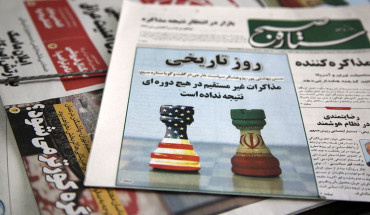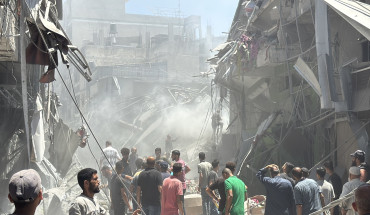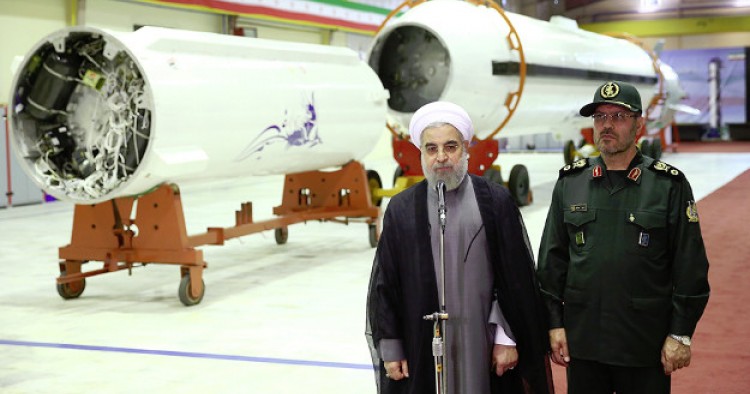The Iranian defense minister said on Sunday that his country would hit back and destroy all of Saudi Arabia, except the Muslim holy sites, if Riyadh showed any aggression toward the Islamic Republic. “I advise them against committing any ignorant move. But if they commit such a mistake, it is unlikely that anywhere in Saudi Arabia would remain intact with the exception of Mecca and Medina,” Brigadier General Hossein Dehghan warned in an exclusive interview with the Lebanese Al-Manar TV channel. He was referring to Saudi Deputy Crown Prince Mohammed bin Salman’s latest remarks that Riyadh would not wait for Iran to take over Yemen and threaten Saudi security and would instead “work so that the battle is for them inside Iran.” Asked by the Hezbollah-affiliated outlet if Saudi Arabia had the capability to take the battle inside Iran, Dehghan replied: “I don’t understand how they want to do such a thing. They think they have such a powerful air force to do so.” The Iranian defense minister also called on the Saudi-led coalition to stop fighting in Yemen against Iran-allied Houthi rebel movement.
Comment: Last Tuesday, Prince Mohammed, who is also the Kingdom’s defense minister, ruled out the prospect of seeking dialogue with Tehran to resolve regional issues. He argued that the regime in Tehran wanted to take over the Muslim world.
Mohammed’s remarks triggered have triggered angry reactions from Tehran. Last week, Iran’s ambassador to the United Nations accused Saudi Arabia’s Deputy Crown Prince Mohammed bin Salman of violating the U.N. Charter by sending unveiled threats and escalating tension with the Islamic Republic. In a two-page letter of protest to the U.N. Security Council and to Secretary General António Guterres, Iran’s ambassador, Gholamali Khoshroo said: “While completely rejecting his allegations against my country, I emphasize that these statements are unveiled threats against the Islamic Republic of Iran.” He also accused Riyadh of being behind the latest killing of Iranian border guards in Iran’s Sistan and Baluchestan Province. Iran’s Foreign Ministry Spokesman Bahram Ghassemi echoed similar remarks in Tehran.
Relations between Tehran and Riyadh took a nosedive in January 2016 when Iranian mobs torched the Saudi embassy to protest the execution of a Shiite cleric in the Kingdom. Iran’s Foreign Minister Javad Zarif acknowledged last Wednesday that Iranian authorities did not manage the embassy attack and its aftermath correctly.
While Kuwait’s foreign minister paid a rare visit to Tehran in January to deliver to Rouhani a message from the six-member Gulf Corporation Council (G.C.C.) that called for frank dialogue between Iran and the Gulf states, the recent remarks by the Saudi prince indicate that Riyadh and some of its regional allies now see dialogue with Tehran as futile because of Iran’s increasing military role in the Arab world, particularly Tehran’s support for Houthi rebels in Yemen.
The Middle East Institute (MEI) is an independent, non-partisan, non-for-profit, educational organization. It does not engage in advocacy and its scholars’ opinions are their own. MEI welcomes financial donations, but retains sole editorial control over its work and its publications reflect only the authors’ views. For a listing of MEI donors, please click here.













